Every business, small and big, is now adopting sustainable business practices to reduce the impacts of climate change. It is a concern now more than ever for organizations to contribute to conserving the environment.
As many people are becoming aware of the need to do so, they take green initiatives. But why is that important for your businesses?
Going green in business comes with many advantages to society, the environment, and the business itself. That is why everyone should find sustainable strategies to achieve carbon neutrality.
In this post, we will discuss the reasons for going green in business and the benefits that come with it. Read on for details!
Table of Contents
- Reasons Why Your Business Needs to Go Green
- 1. To Attract More Customers
- 2. To Attract More Investors
- 3. To Attract and Retain Top Talents
- 4. To Comply with Environmental Laws and Regulations
- 5. To Save on Cost of Business Operations
- 6. To Gain Tax and Legal Benefits
- 7. To Reduce Environmental Pollution
- 8. To Improve Health and Productivity
- 9. To Gain Overall Competitive Advantage
- 10. To Achieve Business Sustainability
- 11. To Ensure Posterity
- 12. To Unlock and Stimulate Innovation
- How to Go Green in Business
- Start Recycling
- Look for Sustainable Commuting
- Encourage Work Employees to Work Remotely
- Go Paperless
- Use Efficient Lighting
- Educating Employees on the Need to Go Green
- Use Paper Sparingly
- Create a Healthy Workplace
Reasons Why Your Business Needs to Go Green
1. To Attract More Customers

People are willing to pay a few bucks more to buy green products. However, we have to first mention the cost of establishing a green business. Many people find it challenging to create a company culture that reduces carbon footprint.
For instance, you may need to consider renewable energy sources as one of your sustainability practices. That may require high investments, especially if you have to pay the upfront cost for the assets. Fortunately, the return you get from the increased sales will offset the expenses.
Consumers are becoming more environmentally conscious than before. As a result, they tend to pay more for products from companies or businesses that take sustainability initiatives.
Customers assess the sustainability of your organization in many ways. They may check your source of energy, participation in community development projects such as tree planting, or even the nature of your products. Recyclable or reusable packaging can earn you more trust from customers.
Investing in a sustainable business has a sure return. Your green initiatives to combat climate change will be rewarded by getting more customers and clients.
See Related: Best Home Energy Saving Products
2. To Attract More Investors

Like customers, investors are also eco-conscious. They are only attracted to green businesses, and that is where they are willing to put their investments.
If you are struggling to get investors, start by implementing sustainability strategies. And even if you have them now, it is just a matter of time before you lose them all if you don’t create a sustainable business.
Investors are becoming stricter in where they put their money. Some may ask for your sustainability report and call for the responsible use of natural resources. No one wants to be part of an organization that contributes to high carbon emissions.
There are many ways of going green in your business to attract investors. Think of switching to renewable energy sources such as solar panels, wind, or hydropower.
There can be many sustainability strategies to put in place with little to no capital. Don’t lose investors just because you cannot reduce your impact on climate change.
3. To Attract and Retain Top Talents

Consumers, investors, employees, and other stakeholders are now eco-conscious and only attracted to eco-friendly companies. But unlike customers and investors, employees have firsthand information about the company culture. They can never be tricked in any way and are often the whistleblowers.
Let’s start by attracting top talents. The business world is ever-changing and becoming more competitive. Big and small businesses go out of their way to attract the best employees. That may be challenging. However, green businesses have an edge.
Both global and local businesses compete for top talent. If you want to also claim your share, think of green practices to reduce your environmental footprint. You can start a recycling program, consider making green products, or any green movement that will publicize your organization.
Once you capture top talents, you need to retain them. That is only possible if you continue with healthy company culture. You still have to remain socially responsible when using natural resources. But that is not all!
You should improve your operations and encourage energy efficiency and responsible use of any available resource. Your employees will be content if you provide a recycling bin at various spots throughout the premise for proper waste disposal.
See Related: Ways to Start Investing in Small Business
4. To Comply with Environmental Laws and Regulations
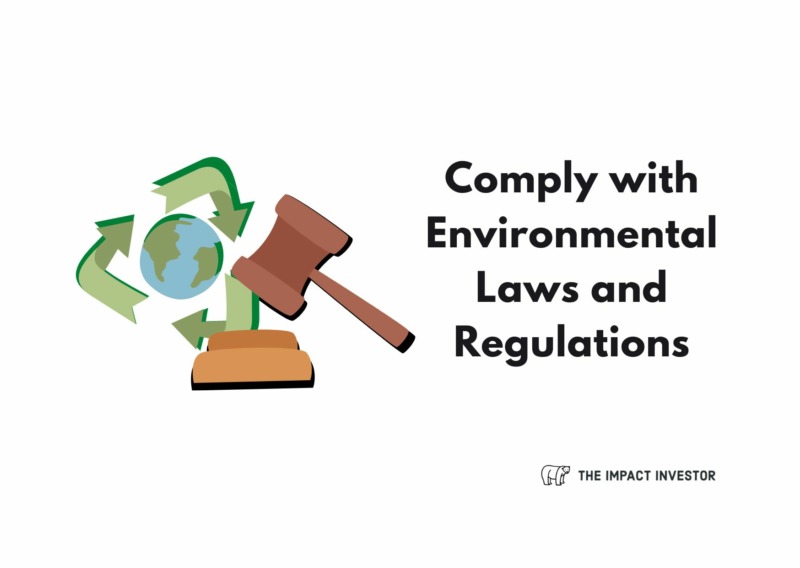
Every state has at least one environmental protection agency that oversees the activities of different companies. By going green in business, you will not cross paths with authorities.
Some regulations ban the use of plastic packaging and have set limits for carbon emissions. Violation of any of these laws attracts high fines and may also lead to the revocation of your license. But that will never apply to you if you have a green business.
You can confidently report your data to the agencies and ensure your business operations continue uninterrupted.
5. To Save on Cost of Business Operations
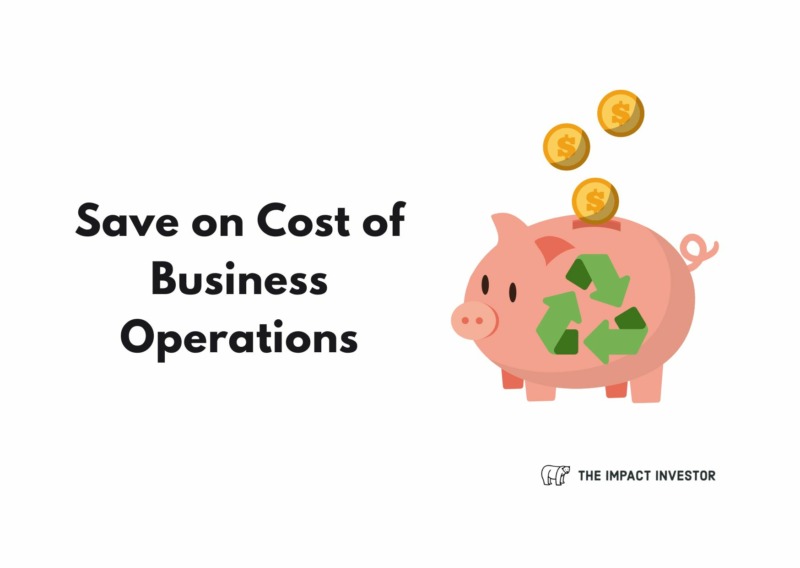
Apparently, green initiatives will reduce your overall operating cost. Sustainable alternatives to fossil fuels are solar panels and wind power. These are way much more affordable.
A recycling program, efficient lighting, responsible water usage, and many others help save money. More efficient lighting reduces energy consumption and, consequently, energy costs.
The same applies to using recycled materials and water conservation practices. They all help you achieve high operational efficiency.
Save money by going green in business. You will reduce many expenses that can be used in developing other areas.
Whether you run a big or small business, cost savings is crucial for continuity. Simply cut unnecessary utility bills through these green initiatives.
See Related: Energy Saving in Business: Enhance Your Energy Efficiency
6. To Gain Tax and Legal Benefits
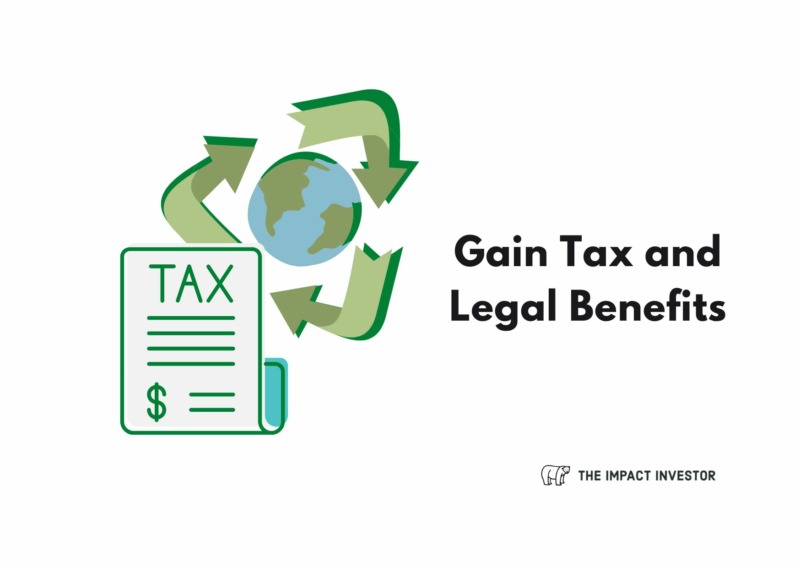
If you still doubt why companies need to go green, think of tax incentives and other legal benefits that come with it. Some people call this green finance, and there is no other better term for it.
For example, you can get up to 30% in tax credit if you install solar panels. That applies to both businesses and individuals who want to reduce environmental impact.
Apart from the tax benefits, solar or wind power is clean energy with many benefits. It is eco-friendly and affordable. Once your system is set up, you can benefit from it and even get extra income if you export the excess energy you produce to the grid.
Tax credits are also available to companies that invest in HVAC systems with high efficiency. And finally, green businesses with certifications enjoy tax deductions. We bet you don’t want to miss this offer from the federal government.
7. To Reduce Environmental Pollution
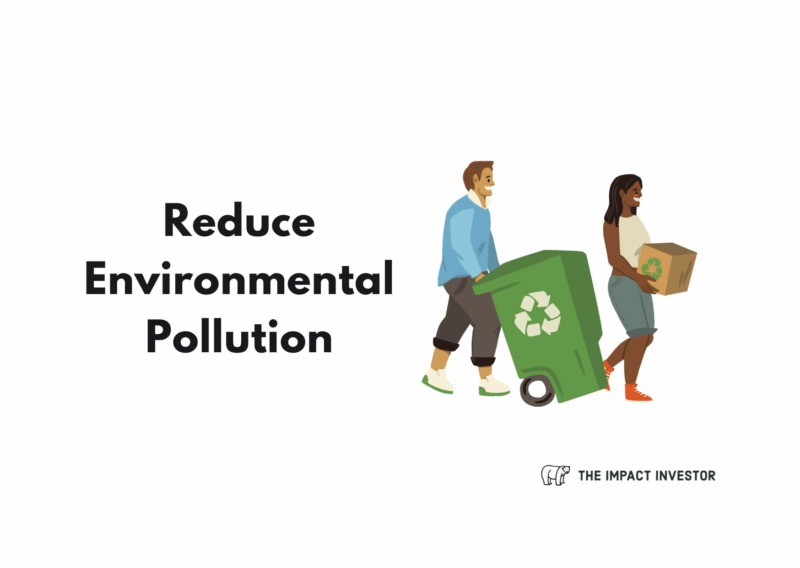
Climate change is a concern to all of us. We, humans, are responsible for conserving it for future generations.
Companies can reduce environmental impact differently, ranging from responsible raw materials sourcing to waste disposal. Businesses are also urged to enact green policies that reduce plastic pollution and encourage responsible waste disposal. Global consumers are also becoming more interested in sustainable products to reduce pollution.
As a company or business leader, you are responsible for reducing environmental pollution. Adopt eco friendly practices such as a recycling program to reduce waste.
According to research, going green in business can reduce pollution by more than half. You can now see the reason why companies need to go green. Sustainability in business is no longer optional but a necessity.
See Related: What Are Green Buildings? What to Know About Sustainable Building
8. To Improve Health and Productivity

Employees in green businesses are more productive. That is because they are healthy most of the time and are happy working in a safe environment.
Green initiatives eliminate elements in the company that can complicate health conditions. The business that first gets the benefits before the rest of us.
According to statistics, millions of people die every year from respiratory-related diseases. These are caused by air pollution. Manufacturing companies emit toxins into the air, leading to all these complications.
A green business does not directly suffer from pollution. The employees stay healthy to give their best at work. That is why businesses should go green. It saves lives and enhances work productivity.
9. To Gain Overall Competitive Advantage

If you still wonder why a business should go green, the answer is to gain a competitive advantage. Apparently, green businesses attract more customers, investors, and employees. These are the pillars you need to stand out in the crowded industry.
A green business beats competitors in different ways. Since research shows that customers prefer sustainable products and are willing to pay more.
Going green will improve your profit margins. And with more clients on your way, you can expect high sales. That is what you need to build a business empire in any industry.
10. To Achieve Business Sustainability
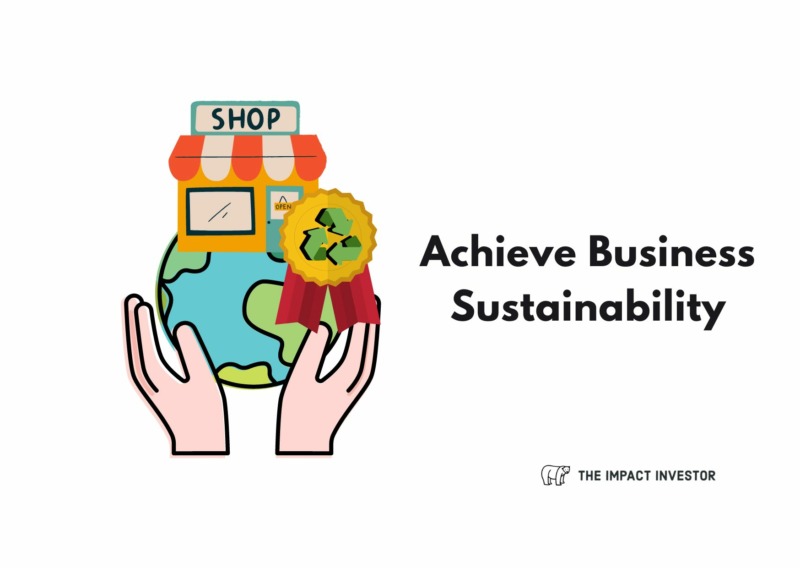
You don’t start your business to close the doors tomorrow, do you? Every business plan has a focus, and all project a better future when the startup becomes an enterprise. But how realistic is that if you don’t consider green initiatives for business sustainability?
Many businesses should go green or risk extinction. Some natural resources will dry up or become harder to find.
For example, fossil fuels are getting limited day by day. They will become pricier and not viable. That is not the fate you predict for your company.
Going green will ensure business sustainability. Businesses that depend on renewable energy sources can stand the test of time. In fact, they become cheaper and cheaper with every sunset.
See Related: What Are the Three Principles of Sustainability?
11. To Ensure Posterity

People are born, live, and die, but the environment remains. It is a sad fact that we should accept.
Our role when we are alive is to conserve the environment for future generations. We should live and leave it as it is.
By going green in business, you reduce your environmental footprint and impact. You can live a fulfilling life and still be happy that you did what you had to do when alive. It is, therefore, our responsibility to care for the resources we have and conserve them for posterity.
12. To Unlock and Stimulate Innovation

Stagnation in businesses happens if you cannot find better ways of doing things. You become too comfortable with your company operations that it blocks your way of thinking.
The urge to go green will make you question your efficiency and identify green initiatives. Many companies have become obsessed with enacting green policies and finding money-saving innovations.
Going green in business is not all about installing solar systems, reducing carbon emissions, or using energy-efficient lighting. You can also achieve the same by optimizing your operations in the entire supply chain. You can find shorter routes and better means of transport to help you reduce expenses and operate more efficiently.
How to Go Green in Business
Now that you know the reasons for going green in business, let’s look at ways to achieve it. Every company aims at reducing its impact on the environment, but it becomes a challenge. That should not stress you because there are different ways of achieving business sustainability depending on your market niche. Check out the following methods and approaches.
Start Recycling
Recycling plastic packaging and other wastes reduces trash in landfills and incinerators. Just introduce recycling bins and refer to laws in your area regarding recycling.
Look for Sustainable Commuting
The first way to do it is by encouraging your employees to walk or bike if possible. Another way is to use a company bus to bring your employees to work instead of individual cars. You will save gallons of gas that they usually burn when stuck in traffic.
Encourage Work Employees to Work Remotely
This is another way of going green. If the work doesn’t require an employee to come to the site or office, let them work from home. For example, a virtual assistant can help answer phone calls and reply to emails and other business inquiries.
See Related: Best ESG Jobs to Start a Career in Sustainability
Go Paperless
Fortunately, technology makes this possible. You no longer have to print memos, notices, newsletters, or reminders.
You can use digital platforms such as websites or get into the inbox of employees and stakeholders. You reduce your paper usage and overall impact on the environment.
Use Efficient Lighting
Efficient lighting will reduce energy usage, thereby saving costs. Think of LED lighting solutions and intelligent systems that will turn off lights in rooms with no occupants.
See Related: Best LED Lighting Stocks to Buy
Educating Employees on the Need to Go Green
Fortunately, many employees now appreciate the need to go green. However, some do not understand why it should be the case.
Take your time to enlighten them on the needs and ways to do it. Let it be a culture in the company to do things like turning off computers after work or using water sparingly.
Use Paper Sparingly
If you cannot eliminate paper, use it sparingly. Many companies use rims of paper unnecessarily.
You can set your printer to print both sides or print drafts on waste paper. Reusing is a way of conserving.
Create a Healthy Workplace
A healthy workplace not only helps you go green but also motivates employees. Use non-hazardous cleaning products and minimize pollution. Also, consider eco-friendly painting and building materials.
Related Resources
- Best Environmental Justice Books
- What is Sustainable Fashion?
- Best Green Jobs to Start a Sustainable Career
Kyle Kroeger, esteemed Purdue University alum and accomplished finance professional, brings a decade of invaluable experience from diverse finance roles in both small and large firms. An astute investor himself, Kyle adeptly navigates the spheres of corporate and client-side finance, always guiding with a principal investor’s sharp acumen.
Hailing from a lineage of industrious Midwestern entrepreneurs and creatives, his business instincts are deeply ingrained. This background fuels his entrepreneurial spirit and underpins his commitment to responsible investment. As the Founder and Owner of The Impact Investor, Kyle fervently advocates for increased awareness of ethically invested funds, empowering individuals to make judicious investment decisions.
Striving to marry financial prudence with positive societal impact, Kyle imparts practical strategies for saving and investing, underlined by a robust ethos of conscientious capitalism. His ambition transcends personal gain, aiming instead to spark transformative global change through the power of responsible investment.
When not immersed in the world of finance, he’s continually captivated by the cultural richness of new cities, relishing the opportunity to learn from diverse societies. This passion for travel is eloquently documented on his site, ViaTravelers.com, where you can delve into his unique experiences via his author profile.
